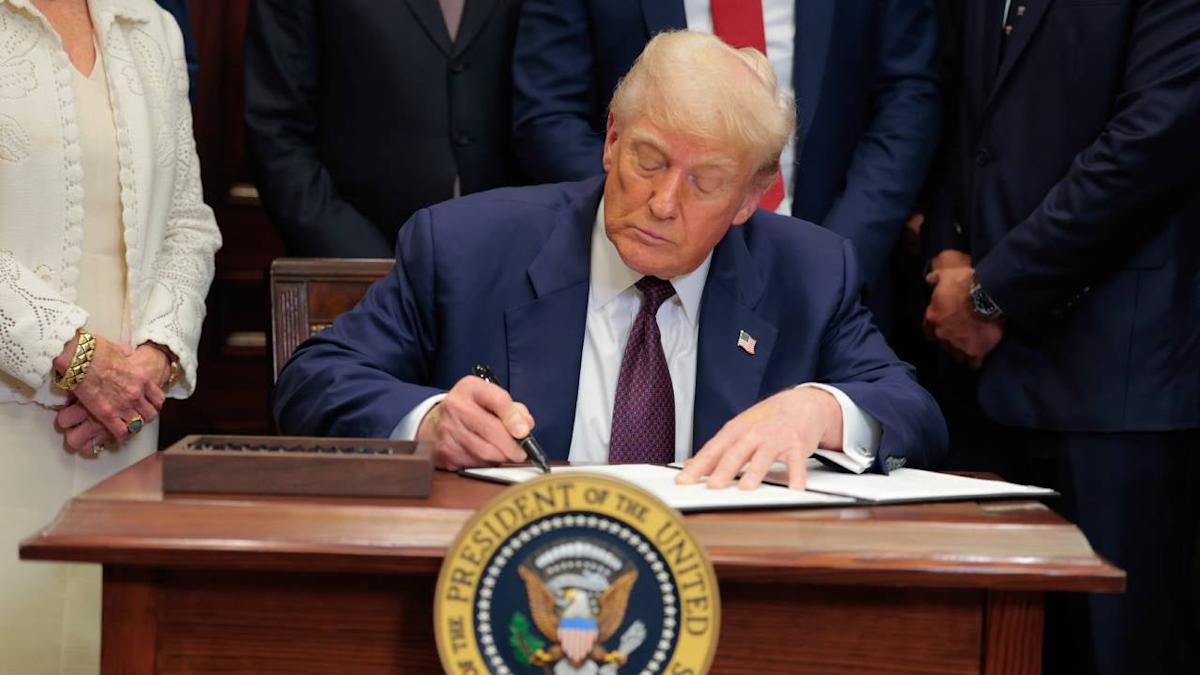President Donald Trump signed an executive order on Thursday directing the Department of Labor to revisit its guidance on including alternative assets — such as private equity, real estate and even cryptocurrency — in 401(k) plans. The move marks a controversial expansion of retirement investment options and may reshape how millions of Americans save for retirement.
While the order itself doesn’t change current policy, it signals strong support from the White House for allowing more sophisticated — and riskier — investments into everyday Americans’ retirement accounts.
The Department of Labor has been instructed to clarify how plan fiduciaries can legally incorporate such assets into defined-contribution retirement plans like 401(k)s and 403(b)s.
Supporters argue the change could open up new avenues for growth and diversification.
“The executive orders reduce regulatory ambiguity, opening the door for faster innovation and wider adoption,” says Jonathan Rose, CEO of BlockTrust IRA, a cryptocurrency investment platform that offers both AI-managed and self-managed IRA accounts.
But critics say it could turn retirement savers into guinea pigs — or worse, exit strategies for institutional private equity firms trying to unload underperforming assets.
Let’s break down who stands to gain and who could get burned as a result of the new executive order.
Compare advisors: Bankrate’s list of the best financial advisors
Private asset managers have been trying to tap into the 401(k) market for years, and now they could be about to get the green light.
BlackRock, Blackstone, Apollo Global Management and KKR have all introduced products aimed at cracking into defined-contribution retirement plans. With Thursday’s executive order, they’re closer than ever.
Early implementations are likely to show up in target-date funds, where managers adjust portfolios over time based on an investor’s expected retirement date. This approach could allow professionals to marry higher-cost private assets with low-cost index funds — theoretically balancing risk and cost.
Back in May, Empower, one of the largest retirement service providers in the United States, announced plans to bring private assets into its offerings. Employees can only access these private investments if their employer chooses to offer them and works with an advisor. In theory, the move could help retail investors access returns previously limited to institutional players.
Get matched: Find a financial advisor who can help you maximize your investments







